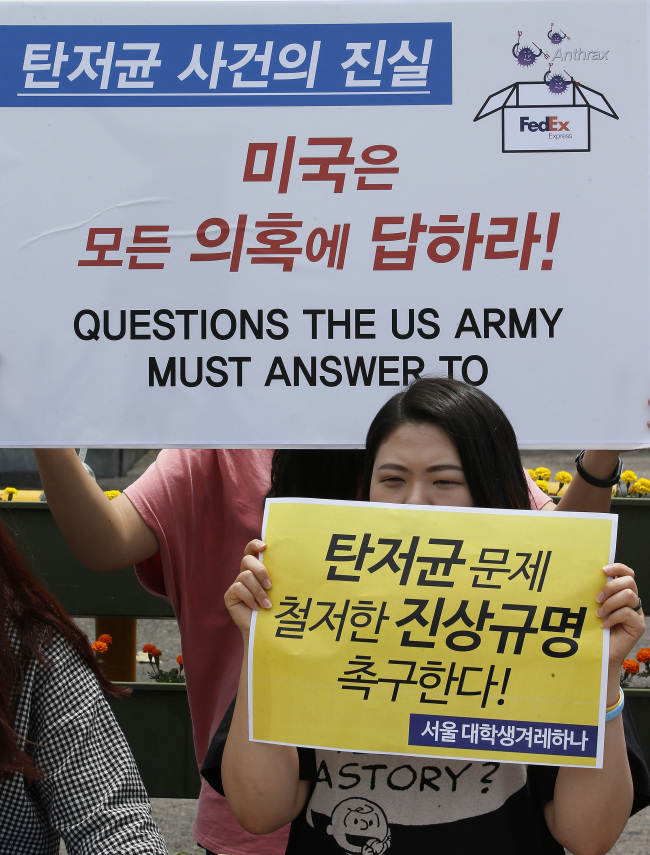South Korea’s Defense Ministry pledged Friday to “promptly and exhaustively” investigate the U.S. military’s accidental shipment of a live anthrax sample to a U.S. base here, after the Pentagon released the outcome of its probe, calling the shipment an “inexcusable mistake.”
“We will visit Osan Air Base at the earliest date to exhaustively look into the accidental shipment of the anthrax sample to the unit and check the outcome of the U.S. side’s probe into the case,” the ministry said in a press release.
 |
(Yonhap) |
“Placing top priority on the safety of our citizens, the South Korea-U.S. joint committee will investigate how (the U.S.) handled the sample and whether it abided by the due regulations for the handling of such a sample, and whether anthrax spores still remain etc.”
Launched on July 11, members of the joint committee have been consulting to work out additional details involving task assignments, future investigation activities and preparations for the onsite inspection of Osan Air Base in Pyeongtaek, Gyeonggi Province.
The committee was established after Koreans were shocked by the revelation in late May that a U.S. lab in Utah mistakenly sent a live sample of anthrax bacteria to a lab in Korea, which had been using dead anthrax spores for its military research.
The U.S. authorities confirmed that live anthrax samples had been mistakenly delivered to 86 military labs in 20 U.S. states, Washington, D.C. and seven foreign nations -- South Korea, Australia, Canada, Britain, Japan, Italy and Germany.
Announcing the outcome of the U.S.’ probe into the case, Undersecretary of Defense for Acquisition, Technology and Logistics Frank Kendall admitted that the shipment was a “serious and inexcusable mistake.”
“This was a mistake. As the secretary said, it was a serious mistake. It should never have happened. It’s an inexcusable mistake. We’re taking the actions to correct it,” Kendall told reporters.
“It was an unintended delivery. It was anthrax that was believed to have been inactivated and not live and not able to grow that went to an air force base in Korea to a laboratory for testing. I don’t think it ever would have gone anywhere else,” he added.
After the release of the investigation outcome, the U.S. Forces Korea vowed to continue joint efforts with South Korea to ensure that bilateral defense programs would continue in a “safe and effective” manner to protect Koreans and the two militaries.
“Alliance biological defense programs are designed to enhance Alliance readiness and defensive capabilities in the face of a very real and significant biological threat,” USFK commander Gen. Curtis M. Scaparrotti was quoted as saying in an official press release.
“The establishment of the ROK (Republic of Korea)-U.S. Alliance’s Biological Defense Cooperation Joint Working Group will ensure continued cooperation on biological defense programs.”
Both Korean and U.S. authorities have been striving to prevent the anthrax case from damaging the bilateral alliance, as civic groups have expressed their anger at the accidental delivery and called for measures to prevent a recurrence.
By Song Sang-ho (
sshluck@heraldcorp.com)








![[Today’s K-pop] Blackpink’s Jennie, Lisa invited to Coachella as solo acts](http://res.heraldm.com/phpwas/restmb_idxmake.php?idx=644&simg=/content/image/2024/11/21/20241121050099_0.jpg)